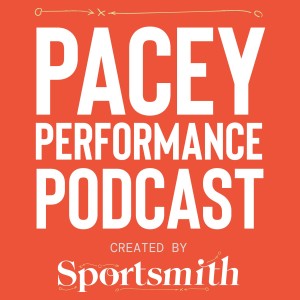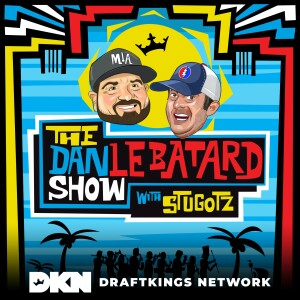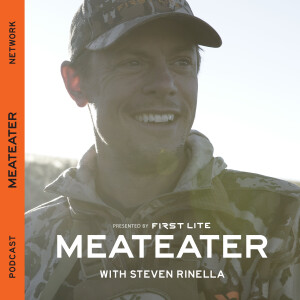
- Podcast Features
-
Monetization
-
Ads Marketplace
Join Ads Marketplace to earn through podcast sponsorships.
-
PodAds
Manage your ads with dynamic ad insertion capability.
-
Apple Podcasts Subscriptions Integration
Monetize with Apple Podcasts Subscriptions via Podbean.
-
Live Streaming
Earn rewards and recurring income from Fan Club membership.
-
Ads Marketplace
- Podbean App
-
Help and Support
-
Help Center
Get the answers and support you need.
-
Podbean Academy
Resources and guides to launch, grow, and monetize podcast.
-
Podbean Blog
Stay updated with the latest podcasting tips and trends.
-
What’s New
Check out our newest and recently released features!
-
Podcasting Smarter
Podcast interviews, best practices, and helpful tips.
-
Help Center
-
Popular Topics
-
How to Start a Podcast
The step-by-step guide to start your own podcast.
-
How to Start a Live Podcast
Create the best live podcast and engage your audience.
-
How to Monetize a Podcast
Tips on making the decision to monetize your podcast.
-
How to Promote Your Podcast
The best ways to get more eyes and ears on your podcast.
-
Podcast Advertising 101
Everything you need to know about podcast advertising.
-
Mobile Podcast Recording Guide
The ultimate guide to recording a podcast on your phone.
-
How to Use Group Recording
Steps to set up and use group recording in the Podbean app.
-
How to Start a Podcast
-
Podcasting
- Podcast Features
-
Monetization
-
Ads Marketplace
Join Ads Marketplace to earn through podcast sponsorships.
-
PodAds
Manage your ads with dynamic ad insertion capability.
-
Apple Podcasts Subscriptions Integration
Monetize with Apple Podcasts Subscriptions via Podbean.
-
Live Streaming
Earn rewards and recurring income from Fan Club membership.
-
Ads Marketplace
- Podbean App
- Advertisers
- Enterprise
- Pricing
-
Resources
-
Help and Support
-
Help Center
Get the answers and support you need.
-
Podbean Academy
Resources and guides to launch, grow, and monetize podcast.
-
Podbean Blog
Stay updated with the latest podcasting tips and trends.
-
What’s New
Check out our newest and recently released features!
-
Podcasting Smarter
Podcast interviews, best practices, and helpful tips.
-
Help Center
-
Popular Topics
-
How to Start a Podcast
The step-by-step guide to start your own podcast.
-
How to Start a Live Podcast
Create the best live podcast and engage your audience.
-
How to Monetize a Podcast
Tips on making the decision to monetize your podcast.
-
How to Promote Your Podcast
The best ways to get more eyes and ears on your podcast.
-
Podcast Advertising 101
Everything you need to know about podcast advertising.
-
Mobile Podcast Recording Guide
The ultimate guide to recording a podcast on your phone.
-
How to Use Group Recording
Steps to set up and use group recording in the Podbean app.
-
How to Start a Podcast
-
Help and Support
- Discover

In this episode of the Pacey Performance Podcast, Johan Lahti discusses the complexities of assessing sprint technique in relation to hamstring injury risk. While technology has made sprint assessment more accessible, measuring its impact on injury risk remains challenging, and Johan questions whether it's always worth the effort. However, he emphasizes the importance of focusing on key aspects of technique, such as minimizing time under tension and analyzing movement patterns like overstriding or increased hip flexion, which can lead to hamstring issues.
Johan highlights that sprint assessments should consider the entire movement cycle, as isolated 2D assessments may miss critical factors like pelvic movement. He notes that technique assessments do not always predict performance or injury risk accurately, stressing the need to address both movement patterns and physical strength. Strengthening key muscle groups, especially the glutes and hamstrings, is vital for maintaining sprint technique, particularly under fatigue, which can help reduce injury risk.
He also discusses the rising prevalence of hamstring injuries due to increased high-speed sprinting in professional sports. He advocates for teaching sustainable sprint techniques to young athletes to develop overall athleticism and prevent future injuries. Force-velocity profiling is also mentioned as a valuable tool for identifying athletes' strengths and weaknesses in sprinting.
While assessing sprint technique is valuable, it must be done holistically and integrated with strength training to minimize hamstring injury risk and improve performance.
Main talking points:
• Focus on key aspects of sprint technique
• Minimize time under tension during sprinting
• Analyze entire movement cycle for injury risk
• Address overstriding and increased hip flexion
• Assess sprint technique in a fatigued states
• Teach sustainable sprint techniques to young athletes
• Develop strength and movement variability early
• Train sprint form to reduce hamstring strain
• Incorporate sprint assessments with strength training
More Episodes
How to incorporate eccentric training into a strength and power programme with John Wagle (Director of Performance Science and Player Development, Kansas City Royals)
 2021-09-09
2021-09-09
The quadrant system; allowing creativity and structure in planning and periodisation with Daniel Bove (Director of Performance, New Orleans Pelicans)
 2021-09-02
2021-09-02
Deceleration ability; testing, developing underpinning qualities and the braking strategy framework with Damian Harper (Lecturer at the Institute of Coaching & Performance)
 2021-08-26
2021-08-26
Weight machines; the most under utilised way to train in-season in the NBA with Cory Schlesinger (Director of Performance at the Phoenix Suns)
 2021-08-19
2021-08-19
Rethinking rehabilitation, tendon health and the rise in popularity of blood flow restriction training with Luke Vella (Lead S&C Coach at Melbourne Rebels)
 2021-08-12
2021-08-12
Winning the Super Bowl, getting fired and making an impact in the NFL with James Hanisch (ex Director of Performance Science at Philadelphia Eagles)
 2021-08-05
2021-08-05
Changing the way we think about training speed and agility, and implementing the methods of Frans Bosch with Leigh Egger (Head of Performance at Feyenoord Rotterdam)
 2021-07-29
2021-07-29
How to develop some of the Premier League‘s most promising young talent with Matt Allen (Head of Academy Physical Development at Tottenham Hotspur)
 2021-07-22
2021-07-22
Harnessing ego to increase player and coach performance with Martin Buchheit (Head of Performance Research at Kitman Labs) and George Perry (athletics coach and sports writer)
 2021-07-15
2021-07-15
Jumping and plyometrics; testing options, the importance of jump strategy and its link to speed with Joseph Coyne (Director of High Performance at Lindisfarne Anglican College)
 2021-07-08
2021-07-08
Why speed should be at the top of the decision making tree in a performance based approach to rehab with Jonas Dodoo (Speedworks) & Alan Murdoch (Speedworks - Bath)
 2021-07-01
2021-07-01
Reducing and rehabilitating hip and groin injuries, monitoring readiness in team sports & isometric training with Ed Gannon (Head of S&C at Buffalo Sabres)
 2021-06-24
2021-06-24
Training tendons; implications for sprinting, jumping and rehabilitation with Keith Baar (Professor of Molecular Exercise Physiology at University of California, Davis)
 2021-06-17
2021-06-17
EPL > NHL > NFL; lessons from working in three of the biggest sports in the world with Jo Clubb (Sports Performance Consultant)
 2021-06-10
2021-06-10
Contextual strength & coordination training, traditional strength training and intelligent science with John Pryor (Senior S&C Coach at Rugby Australia [Wallabies])
 2021-06-03
2021-06-03
Programming for early and late maturing athletes, athlete case studies, and identifying gaps in development with James Baker (Senior S&C Coach at Aspire Academy)
 2021-05-27
2021-05-27
Assessing growth and maturation, developing an LTAD framework, and talent identification with James Baker (Senior S&C Coach at Aspire Academy)
 2021-05-20
2021-05-20
Murderball & training intensity; creating the fittest team in the Premier League with Benoit Delaval (1st Team Fitness Coach at Leeds United FC)
 2021-05-13
2021-05-13
Eccentric training; the why, when and how with Angus Ross (Senior Strength & Conditioning Specialist at High Performance Sport New Zealand)
 2021-05-06
2021-05-06
Developing some of the most impressive young athletes in the world at Duke University with Aaron Getz (Associate Director for Performance [Football] at Duke University)
 2021-04-29
2021-04-29
Create your
podcast in
minutes
- Full-featured podcast site
- Unlimited storage and bandwidth
- Comprehensive podcast stats
- Distribute to Apple Podcasts, Spotify, and more
- Make money with your podcast
It is Free
You may also like

The 3 Knockdown Rule


You Cannot Be Serious


Doug Franz Unplugged


The Dan Le Batard Show with Stugotz


The MeatEater Podcast

- Privacy Policy
- Cookie Policy
- Terms of Use
- Consent Preferences
- Copyright © 2015-2025 Podbean.com
 iOS
iOS Android
Android